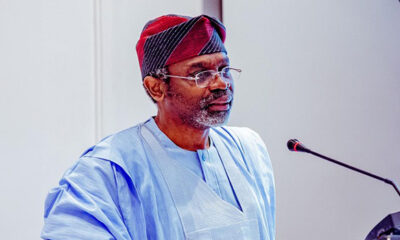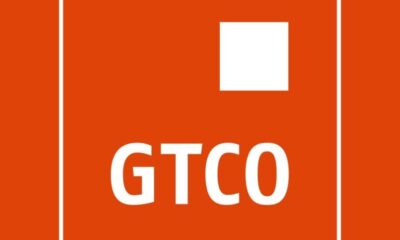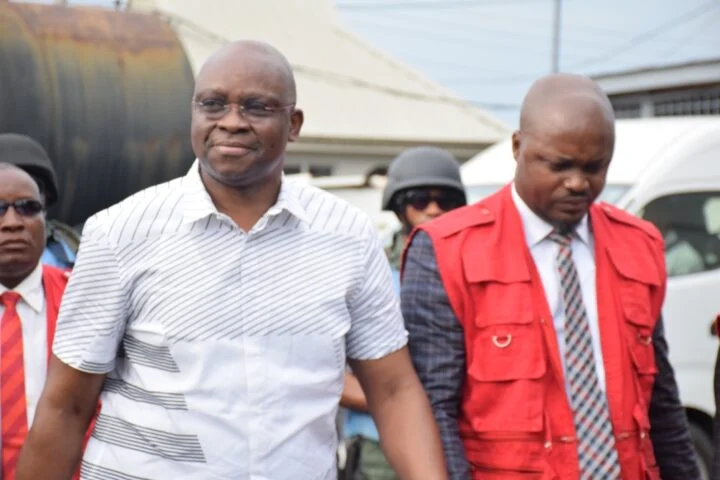The Nigerian National Petroleum Company Limited has begun new discussions with the Dangote Petroleum Refinery regarding the renewal of the naira-for-crude agreement, as talks progress ahead of the expiration of the current deal, which concludes on March 31, 2025.
NNPCL made this announcement in a statement released on Monday, addressing claims that the government-owned oil company had suspended the naira-for-crude deal until 2030, citing that it had forward-sold all its crude oil.
This came as new findings (by The Punch) revealed that crude oil valued at approximately N486.31bn was delivered to the $20bn Lekki-based refinery under the deal between October and December 2024.
It’s important to remember that on October 1, 2024, the government began selling crude oil in naira to local refineries to enhance supply, save the country millions of dollars in petroleum product imports, and eventually reduce the pump prices of refined products.
NNPCL’s Chief Corporate Communications Officer, Olufemi Soneye, explained in the statement on Monday that the initial agreement was for six months, confirming The PUNCH’s exclusive report from last year, and added that renewal discussions are ongoing with the goal of establishing a new contract.
He further noted that under the agreement that began in October 2024, the 650,000-capacity refinery has received 48 million barrels for refining into petroleum products, while a total of 84 million barrels have been supplied to the refinery since its operations began in 2023.
The spokesperson also emphasized that the deal was dependent on availability.
The statement read, “NNPC Limited has noted recent reports circulating on social media regarding the alleged unilateral termination of the crude oil sales agreement in naira between NNPC and Dangote Refinery.
“To clarify, the contract for the sale of crude oil in naira was structured as a six-month agreement, subject to availability, and expires at the end of March 2025. Discussions are currently ongoing towards emplacing a new contract.
“Under this arrangement, NNPC has made over 48 million barrels of crude oil available to Dangote Refinery since October 2024. In aggregate, NNPC has made over 84 million barrels of crude oil available to the refinery since its commencement of operations in 2023.”
The national oil firm further reaffirmed its commitment to supplying crude oil for local refining based on mutually agreed terms and conditions. “
Naira-for-crude policy intact
Similarly, the Chairman of the Technical Sub-Committee on the naira-for-crude deal, Zacch Adedeji, reaffirmed the government’s stance, emphasising that the termination of the contract was never a consideration.
He said there is substantial evidence supporting the policy as the correct approach and affirmed that it will continue to contribute positively to the nation’s economy.
“The policy framework enabling the sale of crude oil in naira for domestic refining remains in force. The initiative was designed to ensure supply stability and optimize the utilisation of local refining capacity. There has been no decision at the policy level to discontinue this approach, nor is it being considered. After implementing the policy for some months, evidence abounds that it is the right way to go, and it will continue to help the economy.
“The framework for domestic crude transactions is designed to promote a competitive and efficient pricing environment,” the Federal Inland Revenue Chairman said in an e-signed statement.
He also revealed that local refineries have not been excluded from domestic crude supply and the Nigerian Upstream Petroleum Regulatory Commission is actively ensuring compliance with the Domestic Crude Oil Obligations provisions of the Petroleum Industry Act.
“The engagement process for crude oil supply to domestic refineries therefore remains in place by structured agreements, balancing factors such as availability, demand, and market conditions. There is no exclusion of local refineries from access to domestic crude oil. The Nigerian Upstream Petroleum Regulatory Commission is actively ensuring compliance with the Domestic Crude Oil Obligations provisions of the Petroleum Industry Act.
“We remain committed to ensuring the efficient execution of this initiative in line with its core objectives – enhancing local refining, reducing foreign exchange exposure, and stabilising the domestic fuel supply,” he concluded.
Commenting on the ongoing contract renewal discussions, the Publicity Secretary of the Crude Oil Refinery-Owners Association of Nigeria, Eche Idoko, stated that the renewal was part of the original plan, emphasising that there have been no changes to the initial discussions.
However, he urged the government to honour its commitment to meeting the 27,000 barrels per day demand from modular refineries, stressing the importance of fulfilling this promise for the continued success of the industry.
Speaking in an interview, the publicity secretary said, “What the Federal Government said to us during our meetings last year was that they were going to start the pilot phase with Dangote, and when it ends, the second phase, which will start after March, will cover other refineries with a capacity of 27,000 barrels. The reason they started with Dangote was because they needed a refinery that could produce petrol, and only Dangote could do that.”
“But we also know that diesel is consumed by trucks that carry foodstuffs, which ultimately drives up the price of products, so modular refineries are important, and we really hope that they would fulfil that promise, as discussed, to include other refineries.”
He also highlighted the gains of the agreement, stressing that “We have seen a reduction in the price of products on one hand, and the naira has performed well against the dollar. Given this success, we are supposed to just enter the second phase and not say the government is renegotiating with Dangote. It is supposed to be with all the refineries.”
Meanwhile, an analysis of crude oil liftings obtained from the NNPCL monthly presentations at the monthly Federal Account Allocation Committee meetings between October 2024 and the last FAAC meeting held in February 2025 showed that the Dangote refinery received crude supply worth N486.31bn.
The national oil firm noted that the transactions were valued at $373.76m, and payments were made at an Afrexim Bank-advised exchange rate payable in naira, amounting to N486.31bn.
However, as of last month, the documents indicated that a total of $126.99m at an equivalent of N199.96bn was listed as obligations due for remittance and yet to be paid.
It further stated that all products were supplied to the refinery under a credit facility, with a payment due date set for 45 days from the date of barrel liftings.
It was observed that the crude oil figures were disclosed post facto, with the December data shared during the company’s last meeting in February 2025. The figures reported in January and February are expected to be presented to the FAAC committee during its meeting in March and April 2025.
The report revealed that on October 14, 2024, the $20 billion Lekki-based refinery received its highest allocation of crude oil, totalling 598,125 barrels. In contrast, on October 30, 2024, the refinery’s lowest allocation was 5,000 barrels. Additionally, the government only fulfilled its daily oil requirement on four occasions during this period.
A detailed breakdown of each transaction revealed that the first shipment, which was loaded onto the Sienna vessel carrying 100,000 barrels of crude oil, was received on October 14. This shipment was sold at a unit price of $78.56 per barrel, corresponding to invoice number PSC10.24.001. The total value of the transaction amounted to $7,856,870, which, when converted at N1,628, equals approximately N12.797bn.
The second transaction with invoice number PSC 10.24.002 was initiated on the same day with 598,125 barrels supplied. It was sold at a unit price of $78.56 per barrel with a dollar value of $46,993,903 and the equivalent of N76.54bn using an exchange rate of N1,635 per dollar.
The next allocation with invoice number PSC.10.24.009 was initiated on October 23, with 597,917 barrels delivered via vessel Sonangol Kalandula to the refinery. It was estimated at a unit price of $78.67 per barrel and a total value of $47,043,332 and naira equivalent of N77.64bn. An exchange rate of N1,650 was used for this transaction.
Similarly, a supply of 350,000 barrels was delivered on the same date at the same unit price and exchange rate. This transaction with invoice number PSC 10.24.008 was valued at $27,537,545 and a naira equivalent of N45.45bn.
The next day, October 24, another supply of 250,000 barrels was submitted at a unit price of $75.37 per barrel at a total cost of $18,844,675 and N30.814bn naira equivalent. An exchange rate of N1,635 was utilised for this transaction with invoice number PSC.10.24.018.
Also, the next allocation with invoice number PSC.10.24.017 was initiated on October 24, with 202,716 barrels delivered via vessel Constantios to the refinery. It was estimated at a unit price of $75.37 per barrel and a total value of $15,280,468 and naira equivalent of N24.98bn. An exchange rate of N1,635 was used for this transaction.
On October 30, the lowest supply of 5,000 barrels was submitted at a unit price of $78.18 per barrel at a total cost of $390,943 and N600.03m naira equivalent. An exchange rate of N1,534 was utilised for this transaction with invoice number PSC.10.24.013.
A summation showed that 2,103,758 barrels were supplied in the month of October. However, there was a significant decline in the supply during November, with only two transactions approved throughout the entire month.
Both transactions occurred on November 4, 2024, with a combined supply of 798,374 barrels of crude oil. The unit price for the oil was $75.82 per barrel, bringing the total value of the transactions to $60,534,073. This amount was equivalent to N100.87 billion, using an exchange rate of N1,666 to the dollar. The invoice number for these transactions was PSC/EXP/OML/146/09-24/RO-19.
In December. On the second day of the month, four vessels conveying 799,737 barrels of crude oil berthed at the refinery terminal. It was sold at a unit price of $74.87 per barrel, a total dollar value of $59,879,328, and a naira equivalent of N93.59bn. An exchange rate of N1,562 was used for these transactions and was paid in naira.
On December 11, 233,401 barrels of crude oil were supplied at a unit price of $76.21 per barrel at a total cost of $17,787,886 and N23.03bn naira equivalent. An exchange rate of N1,294 was utilised for this transaction with invoice number PSC.12.24.001. A remark on this transaction stated that Dangote paid based on the received volume of 193,320 barrels as against the invoice volume of 233,401.
Also, a pending crude oil supply of 956,061 barrels at a unit price of $74.9 and a total value of $71.61 was postponed to January.
The documents, however, didn’t reveal the supply of petroleum products received from the refinery under the deal.
Credit: The Punch

 BIG STORY2 days ago
BIG STORY2 days ago
 BIG STORY1 day ago
BIG STORY1 day ago
 BIG STORY3 days ago
BIG STORY3 days ago
 BIG STORY4 days ago
BIG STORY4 days ago
 BIG STORY2 days ago
BIG STORY2 days ago
 BIG STORY1 day ago
BIG STORY1 day ago
 BIG STORY1 day ago
BIG STORY1 day ago
 BIG STORY4 days ago
BIG STORY4 days ago
























